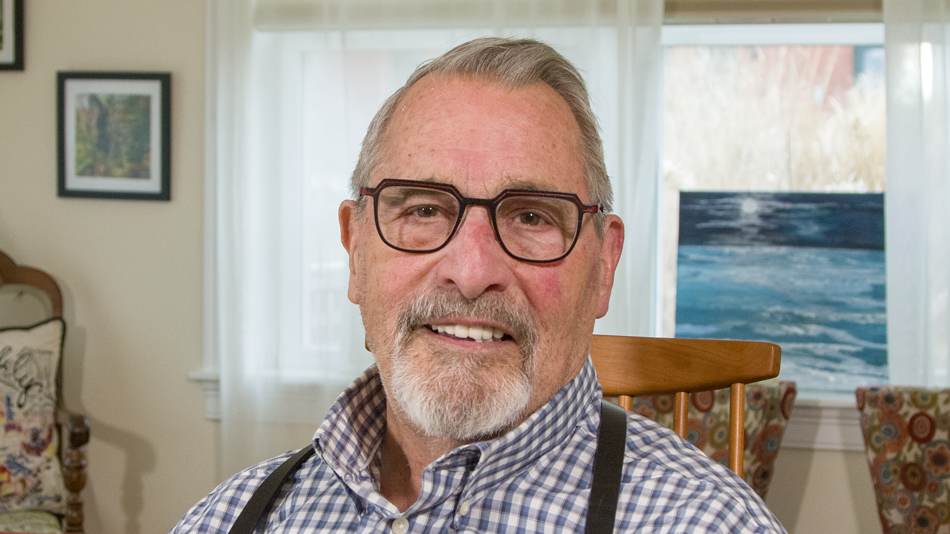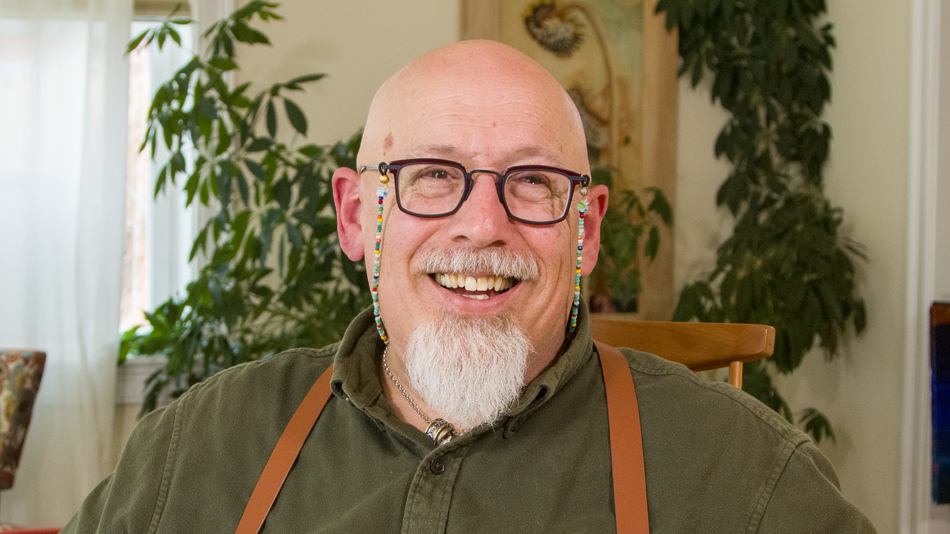My name is William Perez and I’m from Brooklyn, New York.
I went to Cornell University in 1987. I struggled my first semester so much that I had straight Fs and one D. So I was suspended from school. I returned the following fall semester in 1988 and I struggled again.
I had to come from a very poor background and just also being Puerto Rican, I just felt like I didn’t belong. I felt like a fraud. And so I struggled and again, I got very low grades that second semester and I was kicked out again – this time I was kicked out permanently. So for about a year and a half, I just just bounced around, hanging out with friends. I did a lot of clubbing. I met lots of men because I became promiscuous. I did lots of drugs. You know, I was getting into a really bad state.
I got counseling and then that helped me turn around and I went back to school. I went to community college, got my grades back up and then reapplied to Cornell University and was accepted.
When I returned, I met a group of young men. They were all African American and gay. There were five of them. And we basically just became our own little family and we supported each other through the years that we were at Cornell because we all struggled there. We weren’t accepted by our respective communities. I didn’t know any Puerto Ricans there. I probably knew maybe two of them – or knew of them – but they didn’t associate with me. And the larger Hispanic community also did not accept me.
During that time, I also met my boyfriend and he was Caucasian and Japanese. And so we had a very difficult relationship because our backgrounds were just so dissimilar, we were just complete opposites. I came from a very poor background and my parents were uneducated. They didn’t graduate from high school. I lived in the ghetto, what’s known as the ghetto and the poorest section of New York city. And he, on the other hand, his parents both were professors. His father was a professor of chemistry and his mother was a professor of English. And solidly middle class. And you know, he was always so very, very masculine. Very straight-appearing. Muscular.
So we would just be very opposite. And because of our opposites in nature, we were attracted to each other, but it was also a source of friction and we argued a lot. But we did manage to stay together for many, many years, for like 13 or 14 years. We did love each other, even though we fought a lot.
And so in a way, he was what helped me assimilate. He’s the one – through him that I learned how to become middle-class, you know, middle-class sensibilities, behaviors, things that are valued in middle/upper class society. Things that are important to talk about, things that are important to know about. But I, but because of that, I never learned anything about being Puerto Rican.
You know, after a period, our relationship just started, you know, going downhill and we fought more and more and more and it was just – we were approaching the time for us to break up.
And during that time I met someone else and this person was Puerto Rican. He was Puerto Rican from Puerto Rico as opposed to having grown up here like me. He was very aware that I didn’t know much and he taught me so much and I would ask him so many questions about Puerto Rico and what it was like and so on and so forth.
I had been to Puerto Rico, but the last time I was – I was a child, so he decided to take me and he took me to Puerto Rico a year after we met. My boyfriend just took me all over the island and just showed me all the sites and showed me so much history and I just experienced so much. And then I told him that I wanted to go see my hometown.
I remember seeing the hedgerows. There were hedgerows around the perimeter of the town square and there was a cathedral. And when I saw that, all of a sudden, you know, I was overwhelmed with so, so many memories and so many childhood memories and the pain of never having been to Puerto Rico for so many years and being so disconnected and just my tears just started just flowing.
I was a little bit worried about what homophobia would look like there because when I was young, much younger, I guess when I was a teenager I would say, I would read so many stories in the Spanish newspaper about gay people being killed.
And the sense that I got was that, um, people would accept homosexuals as long as they weren’t very outwardly demonstrative about it. So I felt okay, you know, I could deal with that. And then there were areas where they were enough gay and lesbian people, LGBT folks where I could feel that I was with my people.
So after I came back and having experienced so much of Puerto Rico and realizing how much of it made me who I am, that it was no longer just an intellectual idea, I actually got to experience it, I had a pep in my step., I, you know, I felt more joy, almost like a gay person coming out of the closet, you know, you finally – you know something about yourself and you’re not afraid to share it with people.
Then through my boyfriend, I made lots of his friends who are Hispanic. And so I immersed myself in that also because prior to that, I would shy away from other Hispanics who spoke Spanish primarily, who were more comfortable speaking Spanish because my Spanish is what’s called Spanglish. You know, I did learn more Spanish, became more comfortable with it, and that helped a lot because then that allowed me to then be more comfortable meeting other people on my own and speaking to them in Spanish without feeling self conscious about it.
For the longest time… I just see this funny – I don’t know if trajectory is the right word, but this kind of path where in the beginning, given my situation, you know, being in a world of people who are highly educated, I was very familiar and comfortable in a white space. I guess you could say that it was sort of an assimilationist way of seeing the world and so I saw white people as the people that I had to gravitate towards.
Having met my boyfriend and just going to another extreme and trying to be as Puerto Rican as possible and become this Puerto Rican that I wasn’t for so many years, I’m to the point that I didn’t want to have anything to do with white people and I could not even imagine myself ever dating a white person. I couldn’t understand how I ended up with my first boyfriend.
But then after so many years of this, you know, being Puerto Rican and having become more true to myself and knowing myself more, I’ve kind of swung back to the middle. You know, I feel more balanced and that now, hey, sure, I can go out with a white guy. You know, it’s just like I am who I am. That’s just who I am. And if you love me for who I am, and I’ll love you for who you are. It took 50 years to get to that point but I guess that’s part of growing up.
We all have different issues, things that we have to learn in our own lives and that was what I had to learn just to learn who I was as a gay Puerto Rican and how the two are fully what I am, not one or the other.
You can only just be yourself. You can only be present to where you are in life and try to be as true to yourself as much as possible. And you know yourself inside, you know who you are. Now, after so many years after searching for, like, an identity of who I was and so on and so forth, and now that I know who I am and I’m proud of who I am and I’m very comfortable with myself.
I realize I am back where I was in the very beginning. I am the same person. The only difference is that back then, I wasn’t sure of myself and now I am sure. So I would just tell a young person, it’s just like, you know who you are deep down inside. Love that person. You know. Don’t let anyone take that love and pride away from you and tell you that you’re “less than.”








Share